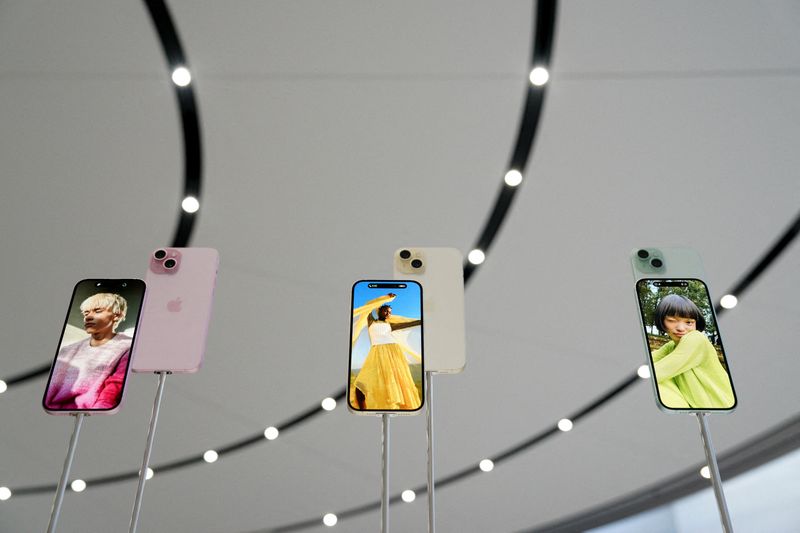By Mike Scarcella
(Reuters) - Apple (NASDAQ:AAPL) has been hit with a flurry of new consumer lawsuits accusing the iPhone maker of monopolizing the smartphone market, piggybacking on a sweeping antitrust case lodged by the U.S. Justice Department and 15 states last week.
At least three proposed class actions have been filed since Friday in California and New Jersey federal courts by iPhone owners who claim Apple inflated the cost of its products through anticompetitive conduct.
The lawsuits, seeking to represent millions of consumers, mirror the Justice Department's claims that Apple violated U.S. antitrust law by suppressing technology for messaging apps, digital wallets and other items that would have increased competition in the market for smartphones.
Apple has denied the government's allegations. The Cupertino, California-based company did not immediately respond to a request for comment on the consumer lawsuits.
Attorney Steve Berman, whose law firm Hagens Berman Sobol Shapiro filed one of the new cases, noted that his firm had earlier sued Apple for allegedly thwarting competition for its Apple Pay mobile wallet.
"We are pleased that the DOJ (Department of Justice) agrees with our approach," Berman said.
Attorneys behind the other new cases did not immediately respond to requests for comment.
Apple is already fighting private lawsuits challenging its business practices as anticompetitive. A judge in February ruled that Apple must face a class action on behalf of millions of consumers claiming it monopolized the market for iPhone apps. Apple denies the claims.

Hagens Berman previously secured a combined $550 million in settlements from Apple in separate cases related to its ebook pricing and app store policies.
A 2022 study by a University of Buffalo law school professor found that private antitrust class actions can sometimes go farther than government cases, expanding "the scope of wrongdoing, the amount of recovery, or the number of defendants involved."